With the rise in the e-sports, the gaming community has grown at an astronomical rate. According to Statista, an online statistics portal, the number of active gamers worldwide is expected to rise by 50% to 2.7 billion in 2021 as compared to 2018.
While gaming poses certain benefits for youths like improved multitasking skills, memory retention and improved concentration, it could also result in addiction.
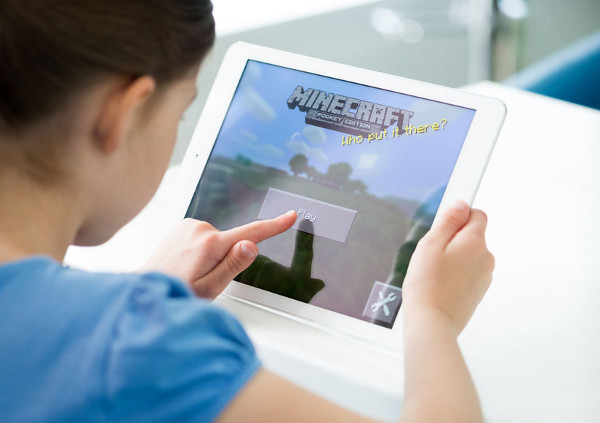
In 2018, The World Health Organization classified gaming addiction as a mental health disorder highlighting global concerns on the issue. Soon after in 2019, a report published by Limelight Networks – a United States-based content delivery network service provider – found that Singapore has the longest average gaming duration of 1.56 hours.
It is therefore important for parents to be aware of and identify possible signs of gaming addiction, to understand where to draw the line with their children and how to manage the situation with their kids.
In the first part of the interview, we speak to Mrs Anita Low-Lim, Media Literacy Council member and Senior Director, TOUCH Integrated Family Group who shares her advice from the community viewpoint.
![]()
1. What is the gaming situation among children in Singapore – e.g. are there many gaming addiction cases in Singapore, how does it start, are different age groups more likely to get addicted to certain types of games (mobile, computer, console)?
While there are no official statistics on gaming addiction cases in Singapore, it is a growing concern. In 2019, TOUCH Community Services saw 68 cases related to excessive gaming and device usage, which was double the number of cases just a few years ago.
There is a possibility that this number may rise this year, as the COVID-19 pandemic has resulted in children staying at home for home-based learning and having much of their extra-curricular activities and outings with friends curtailed. As such, some of them may turn to gaming or other online activities to occupy their time and stay in touch with their friends.
Based on what we have seen at TOUCH Cyber Wellness, most children and youth start as casual gamers but over time, they may find it difficult to stop gaming because they become so absorbed in it that it starts taking over important priorities such as going to school or socialising with their family and friends.
A commonly played genre is the Massively Multiplayer Online (MMO) games. It can be very addictive as it comes with a wide range of styles and gameplay features that allow youths to play and compete with their friends in Singapore and all over the world.
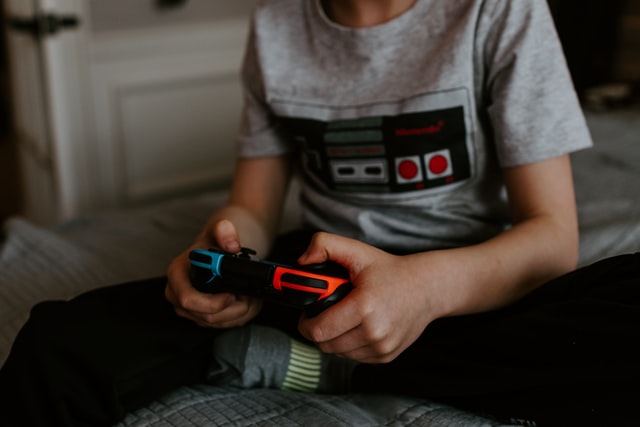
At the Media Literacy Council (MLC), we are working to increase the public’s awareness on the seriousness of gaming addiction and how they can mitigate it through our outreach programmes, cyber-wellness workshops, and online resources such as parenting guides for the digital age.
Similarly, at TOUCH Cyber Wellness, we have programmes aimed at equipping youths with the necessary support and skills to help to regulate their emotions and manage their gaming-related issues before they transition to adulthood.
Having said that, there are also merits to gaming for children. For example, similar to the physical sports arena, games can teach individuals essential life values such as teamwork, resilience, and determination to succeed.
It also helps to hone analytical and logical thinking skills that can be beneficial to a child’s cognitive development. Some studies have also shown that gaming has lasting positive effects on perception, attention, memory and decision-making.
Therefore, parents should also not bar their children entirely from gaming due to its potential addictiveness, but instead, learn to harness it as a tool that can enhance their child’s overall development. It is important to note that gaming in itself isn’t a bad thing. What we should aim towards doing is to strike a balance between online and offline mediums and lead a healthy and balanced lifestyle.
2. What are some aspects of games that may make them more likely to be addictive?
Many of the youths that we’ve seen at TOUCH would say that they game purely for entertainment purposes and stress relief. However, after speaking with them it often becomes apparent that they use gaming as a coping mechanism to escape from reality.
There are three core elements of the gaming experience that help keep individuals fully immersed in the virtual world. These are interactivity, instant gratification and repetition. When combined, they may provide a sense of accomplishment, leading to increased self-esteem and a desire to play more.
Other elements such as the engaging storylines, realistic graphics and multiplayer functions also make games highly immersive and appealing to all individuals, not just younger audiences.
MMOs, for instance, are notoriously addictive, offering seemingly endless worlds for players to explore and level up alone, or with real and online friends. Through questing, players feel a sense of purpose and accomplishment. Coupled with the camaraderie built through guilds and online friends, MMOs offer players a fully immersive escape from reality.
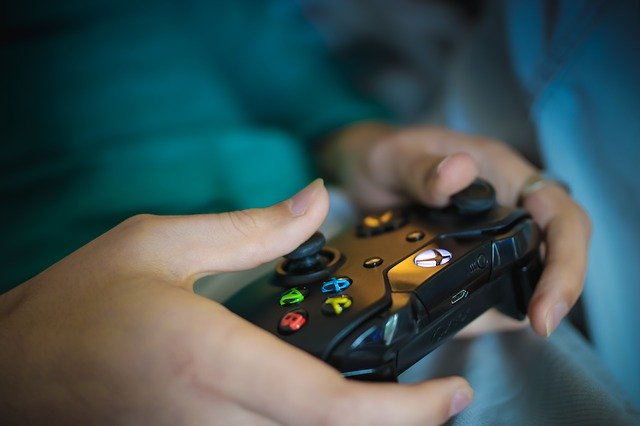
Creators of video games are always looking for novel ways to attract gamers. One of the ways they have done this is by incorporating loot boxes in video games.
Loot boxes are virtual mystery boxes that gamers can buy in hopes of enhancing their gaming experience, without a guarantee of what they might receive. This added element of chance gives gamers the impetus to often make repeated purchases until they are satisfied with what they have received.
Lastly, games are highly accessible and increasingly convenient. Many games can be played across a range of platforms including consoles, computers, or mobile devices, and if the individual does not practise self-control it is easy to become addicted.
3. How can parents advise or handle children who are exhibiting signs of gaming addiction?
Today, technology has become an integral part of our daily lives. For parents, it is almost impossible to remove all screens from their children’s lives, and this is also not advisable.
During our sessions with parents and youth, we often find that gaming addiction is a symptom of an underlying problem. Therefore, parents should work towards maintaining a healthy and open relationship with them.
This strong foundation will allow them to have open conversations with their children. For instance, a child who is bullied at school may seek solace in video games where they have a better chance of making friends, being able to feel powerful and have a sense of achievement.
We would advise not to ban video games or screens from a child’s life, but rather manage their gaming time to a reasonable degree. For example, parents can establish firm guidelines on their child’s gaming hours. Additionally, they can find alternative activities for children to engage in at home instead of gaming such as playing board games with the family or working on an art project.
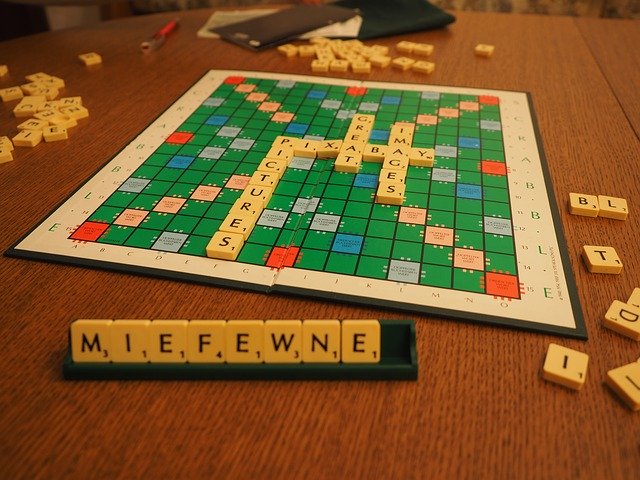
Parents should also model good behaviour by limiting their own screen time, as well as participating in fun offline activities with their children to reduce their dependence on gaming and encourage them to lead a balanced online and offline lifestyle.
4. What are some programmes at TOUCH Cyber Wellness that help to combat gaming addiction?
At TOUCH Cyber Wellness, we offer a programme called DigitalMINDSET that aims to help youths aged between 12 and 21 with their excessive gaming and mental health-related issues.
Under DigitalMINDSET, participants undergo counselling, and individual and group therapy sessions to identify the root of their gaming issue and are equipped with healthy coping techniques to help them better manage their emotions and excessive gaming or device use. The programme also introduces them to alternative offline activities to channel their energy into such as dragon boating and laser tag.
5. What are some MLC resources for parents and children to help them deal with gaming addiction?
The MLC has developed a range of resources for parents to help them educate their children about media literacy and cyber wellness. These resources can be found on the MLC’s website and address topics such as screen time, privacy and cyberbullying. Here’s a list of useful guides:
a) Parent Guide: How much time should my child spend staring at screens?
As gaming addiction is determined by the amount of time children spend in front of screens, parents can manage and limit the amount of time children spend with digital devices in general, to prevent dependence and the potential for gaming addiction.
⇒ Related Read: Is My Child Getting Too Much Screen Time? 8 Things Parents Should Know
b) Digital Parenting with Preschoolers
Today’s children are the first generation to grow up fully immersed in the digital age, which poses a problem for parents in navigating this new, uncharted territory. This seven-point guide includes techniques and habits that will help to curate a child’s online usage and moderate screen time to prevent future gaming addiction.
c) 3 Parental Control Apps for you to use with the family
Parents can also consider installing programmes for better oversight of their child’s screen usage. This guide highlights three apps on the market that can help parents better manage their child’s online usage.
For more information and resources on how to deal with gaming addiction and other media literacy issues, visit this link.
![]()
In this second part of the interview, we speak to Dr Marcus Tan, Consultant Psychiatrist, Nobel Psychological Wellness Clinic, a member of Healthway Medical Group regarding gaming addiction from a healthcare viewpoint.
6. Share with us the signs and symptoms of gaming addiction. What are some of the emotional and physical symptoms of gaming addiction that parents can look out for?
Addiction is a term we use to describe the phenomenon where a person has lost control over a certain activity he/she engages in or a substance he/she consumes. There is growing evidence of a correlation between changes in brain chemistry and addictive behaviours.
Emotional/behavioural signs or symptoms of video game addiction can include:
- Spending an inordinate amount of time or monetary resources on gaming activities
- Being preoccupied with thoughts of doing so or anticipating the next session when not gaming
- Becoming irritable or feeling restless when they are unable to engage in video gaming
- Neglecting important aspects of self-care e.g. forgoing sleep or ignoring personal grooming needs to engage in gaming sessions
- Prioritising gaming over important activities e.g. school, social meet-ups, hobbies or meals
- Short of gaming, there is a loss of interest in activities that used to bring enjoyment
- Becoming more secretive about their gaming activities and downplaying/concealing the time or money spent
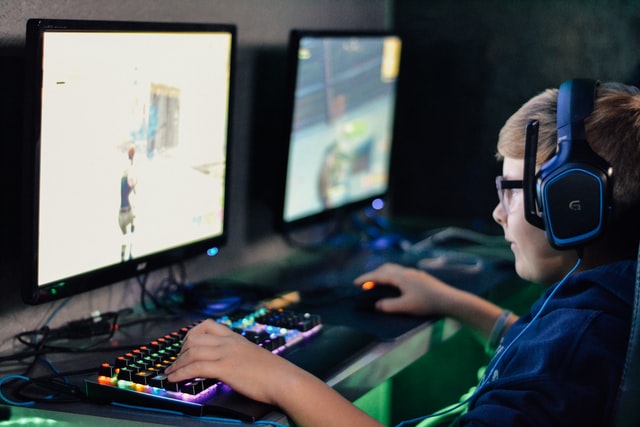
Physical signs and symptoms of gaming addiction usually relate to those associated with being sedentary for long periods of time or repetitive strain injuries from game controller use. These range from body weight changes, chronic back pain, carpal tunnel syndrome to even personal hygiene-related issues.
⇒ Related Read: Watch Your Back! Stretching And Lifting Tips For Parents
7. What are the short-term and long-term effects of gaming addiction?
Some of the short-term effects of gaming addiction include withdrawal, irritability and losing sleep because of the time spent on video games. These short-term effects may have long-term repercussions if not addressed properly.
In the longer term, children may lose valuable opportunities to socialise with their peers in real life. This may hinder the development of healthier coping strategies to deal with stress or problems in their lives.
Children’s emotional well-being may be impacted too because they might not have gained the experience or confidence to handle challenges in their everyday life. This may be especially acutely felt when children who are addicted to gaming come to appreciate how reality is quite disparate from the virtual world they spend so much time in.

When video gaming becomes so consuming to the point children start to miss school, this can affect their academic performance, which may, in turn, impact what they can do in life later.
8. What are the recommended treatments for individuals with gaming addiction?
If parents observe that their children are exhibiting symptoms of gaming addiction, they can first try to speak to their children about it to explain the importance of moderating their game time.
Parents can also refer to MLC’s website for other tips on how to manage their child’s screen time. If the symptoms do not improve and the child continues to exhibit behaviours that display an addiction to gaming, parents should consider seeking professional help.
As gaming addiction is a type of addictive disorder, its treatment is similar to that for other addictive behaviours.
However, the exact treatment will vary depending on the needs of the patient and on several factors such as the severity and the effects on the individual.
A range of methods can be applied. For a start, this may involve educating the individual about gaming behaviours and how it affects his/her well-being. This is usually complemented with personal therapy and counselling sessions provided by a trained addiction medicine specialist to help them gain insight into their current situation and to cope with their emotions.
These sessions will also seek to explore their identity, build self-esteem and enhance their emotional intelligence so that they can look beyond gaming and explore options for other lifestyle activities.
Family therapy sessions may be helpful for some individuals and family members to repair relationships damaged by gaming addiction. These sessions can also be an opportunity for family members to learn how they can support the individual during his or her recovery journey.
For persons who suffer from co-morbid psychiatric disorders e.g. mood or anxiety disorders, these will need to be treated too.
* * * * *
Stay in touch! 📣 Subscribe to our Telegram here for our latest updates.
Want to be heard 👂 and seen 👀 by over 100,000 parents in Singapore? We can help! Leave your contact here and we’ll be in touch.











































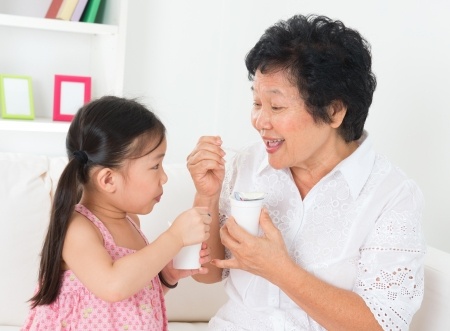














Leave a Comment: